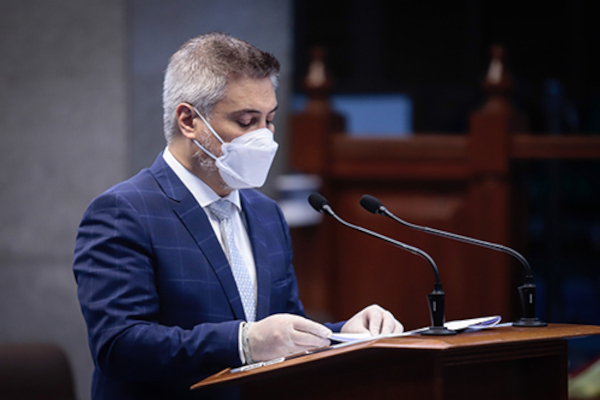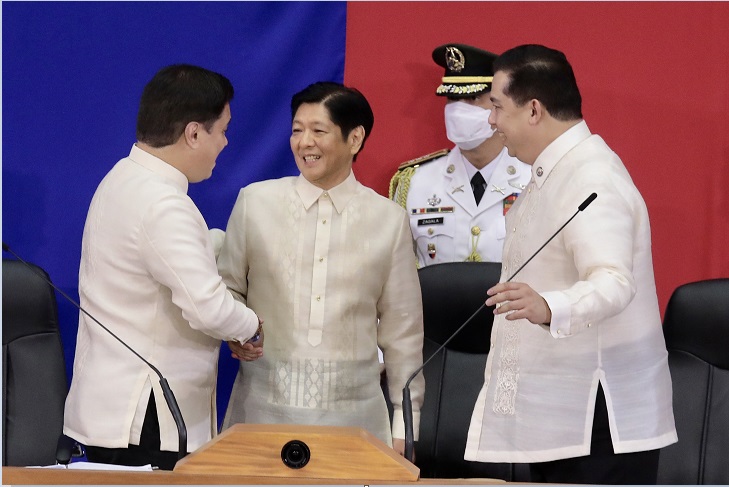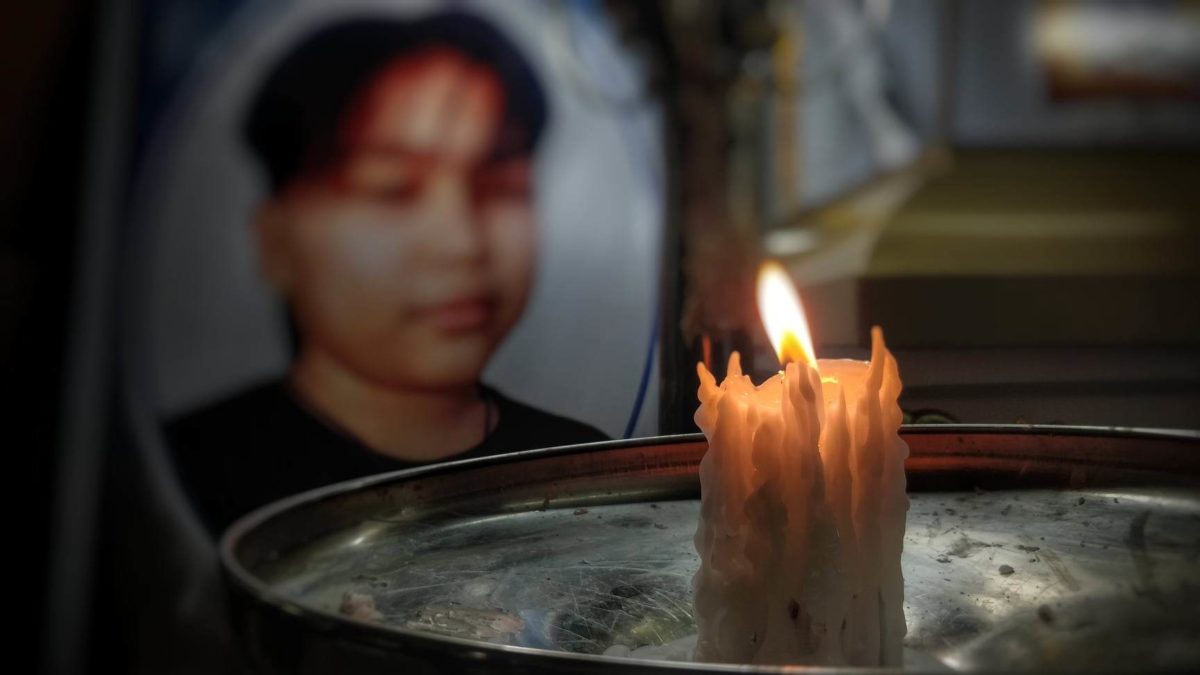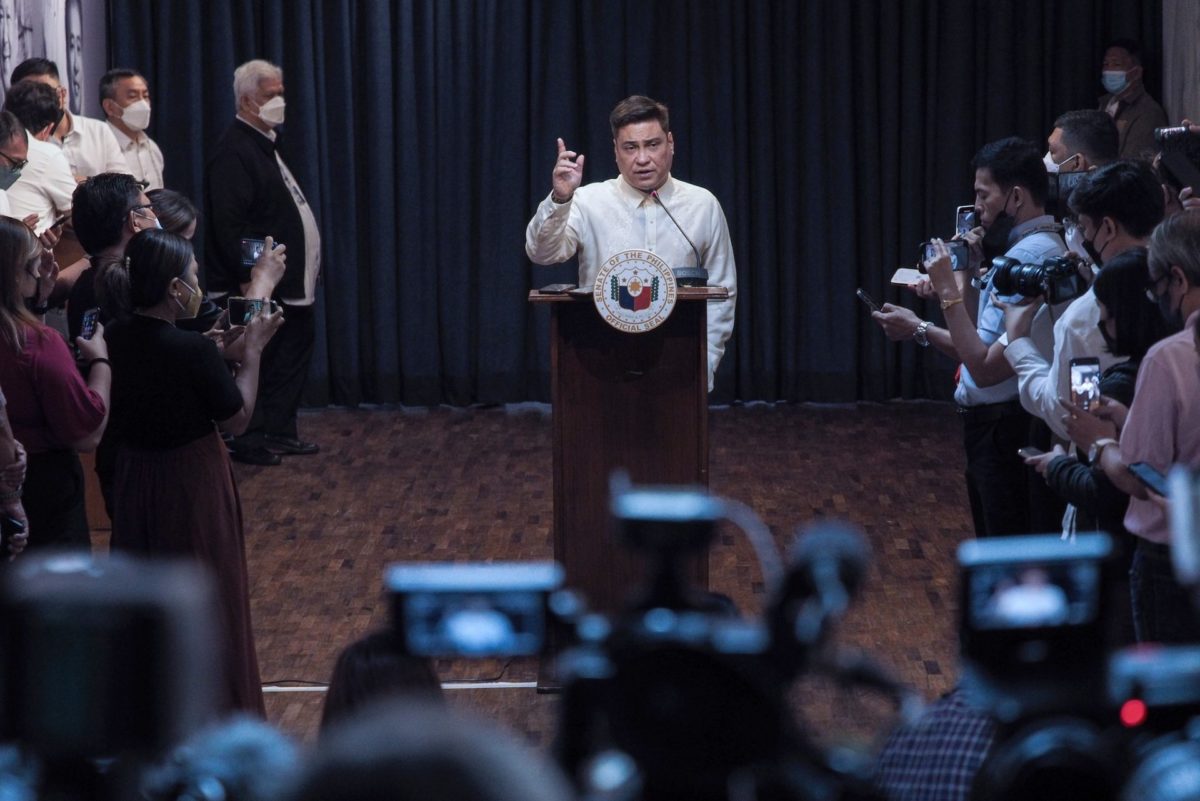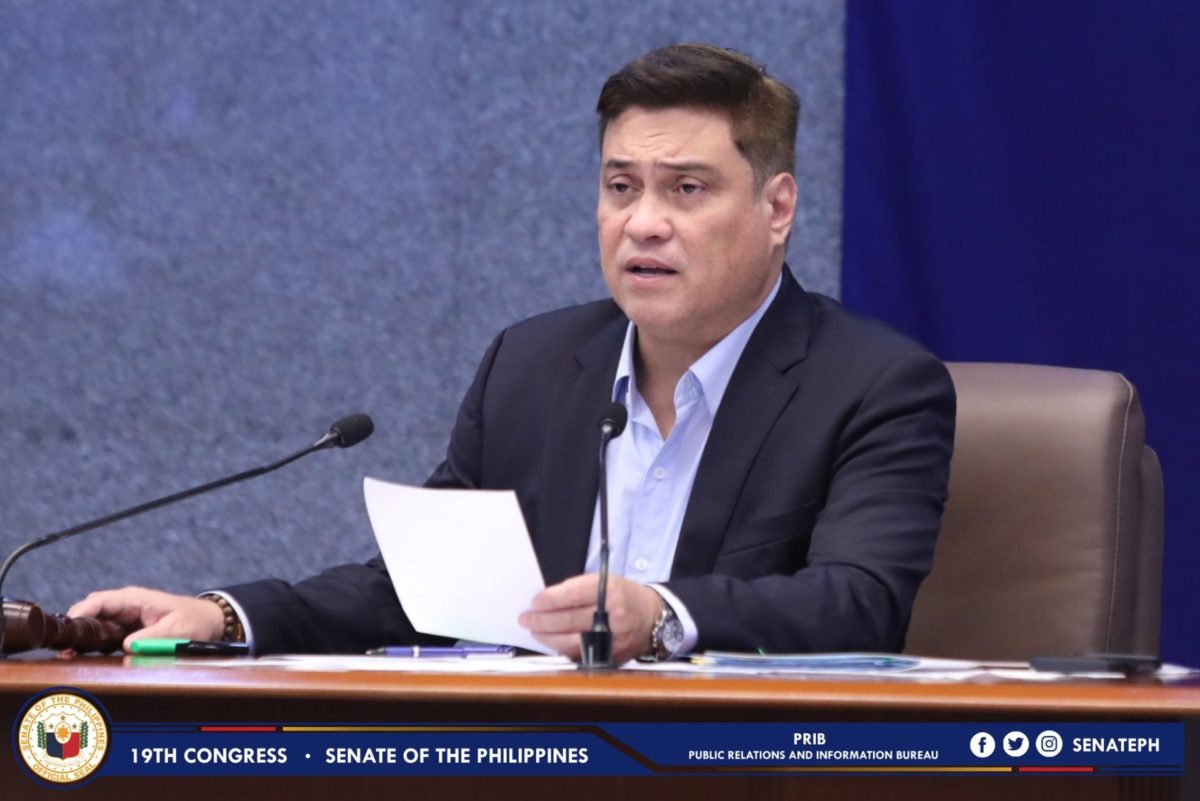More than a month ago, Senate President Juan Miguel “Migz” Zubiri said critics of the Marcos administration were turning a blind eye on the accomplishments of President Ferdinand Marcos Jr. on his first 100 days in office.
Now, Zubiri finds himself at the receiving end for playing deaf and blind to continuing violations of human rights associated with the government’s war against illegal drugs.
Zubiri, the country’s third highest and most powerful government official, said in a press briefing when the Senate resumed session on Nov. 7 after a Halloween break: “Wala naman akong nakikitang namamatay. Unless may namatay na drug pusher, eh wala naman ako naririnig.”
He went on to say: “Nagagalit na nga ang previous administration, humihina na [ang kampanya laban sa droga].”
This was part of his response when a reporter said the United Nations Human Rights Council had called out the Philippine government for alleged human rights violations, including drug-related extrajudicial killings.
It was actually the UN Human Rights Committee, not the council, that expressed concern over reports of “grave human rights violations and the extremely high number of extrajudicial killings, particularly in the context of the government’s campaigns against illegal drugs,” in its report dated Nov. 3.
Zubiri should have known the difference between the Human Rights Council and the Human Rights Committee (HRC). While both are under the UN, they have different compositions and functions.
The council’s mandate is to promote and protect human rights around the world. It has 47 members elected for staggered three-year terms on a regional group basis. The committee, on the other hand, is composed of 18 independent experts who monitor implementation of the International Covenant on Civil and Political Rights by its state parties.
Zubiri initially dismissed the issue about the continuing human rights abuses in relation to the drug war. “Ano ba ‘yun? Ang tagal na isyu na ‘yan. Lumang tugtugin na ‘yan.”
Human rights group Karapatan quickly took exception to the Senate president’s statement, pointing out that the HRC’s remark was a call for accountability for documented human rights violations in the Philippines, not old news or old and overplayed song as Zubiri had described it.
Zubiri said that in his recent trip to the European Union, human rights was “discussed a bit.” But then, he also said: “We told them, it is the new administration; there’s a new policy. The president said maximum tolerance when it comes to human rights.”
“First celebration niya (Marcos with the PNP (Philippine National Police), ‘yan ang binanggit niya, maximum tolerance. Jail the high-level pusher, rehab natin iyong low-level users. So, as you can see, wala naman akong nakikitang namamatay. Unless may namatay na drug pusher, eh wala naman ako naririnig. Nagagalit na nga ang previous administration, humihina na [ang kampanya laban sa droga].”
Does Zubiri need to witness the killings and hear the gunshots to believe the PNP report on 28 deaths in the first 100 days of the Marcos administration?
The reported deaths, which happened from 12,309 anti-drug operations in July to September, were consequences of the law enforcers’ claims that they were suspects who resisted arrest.
Getting killed for resisting arrest is what Zubiri should call “lumang tugtugin.”
He insinuated that the UN Human Rights Committee was singling out the Philippines over human rights abuses because of critical media reports.
“It’s unfair for the UN to tag us that. It’s unfair. Iba-ibang… Alam mo, it’s not being hypocritical here, There are certain countries abroad that have extreme immigration measures na kinukulong nila iyong mga illegal immigrants na gustong pumasok. Nasa loob ng kulungan, detention centers. Nasaan ang human rights? Ba’t hindi nila binabanggit iyon? From the United States to Europe, they have share of problems of immigration … illegal detention of immigrants. No one is pointing fingers at them for their human rights [violations]. I don’t think that’s right,” the Senate president said.
Turning his criticism to the local media, Zubiri also said: “Then they say iyong mga media killings, kay Percy Lapid. Ambilis-bilis naresolba nung kaso ni Percy Lapid. It is the fastest that I’ve seen. Within a month’s time meron na nga silang nahuli na mastermind.”
Unless Zubiri knows something that has not been made public, the mastermind in the killing of radio commentator Percival “Percy Lapid” Mabasa has not been arrested.
Joel Escorial, 38, surrendered on Oct. 17, 2022 “out of fear for his personal safety” following the release of his photos the previous week. A P6.5-million bounty was placed on his head. Escorial, who had confessed to shooting Mabasa, was not arrested.
Zubiri, being second in the line of succession to the presidency, should first get his facts right before complaining about getting negative or critical press reports.
Just over a month ago, the Chinese Embassy called out Zubiri for announcing during the Oct. 11 joint hearing of the Senate committees on ways and means and public order and dangerous drugs that Chinese Ambassador Huang Xilian said in a meeting with him that “the Philippines now is part of a blacklist of tourist sites because they do not know if the tourists going there will be operating or will be joining POGO [Philippine offshore gaming operator] operations.”
The Chinese Embassy described it as “misinformation” coming from the Senate president. Zubiri disagreed and insisted that the ambassador mentioned the word “blacklist” several times.
The two other senators present in Zubiri’s meeting with the envoy said while Huang indeed mentioned the word “blacklist,” it was said not in the same context as the Senate president understood it. Sen. Sherwin Gatchalian said Huang only mentioned the “possibility” that China would “restrict” its citizens from coming to the Philippines.
Zubiri later corrected his statement but did not directly admit his mistake. “Maybe it was lost in translation and what the good ambassador meant was we could be possibly blacklisted as he mentioned they do that to countries who promote gambling to their countrymen,” he said.
As many have already pointed out, Zubiri should first look into the mirror before asking the media to help “beautify” the image of the Philippines. Obviously, he could not fully grasp the work of responsible, legitimate media who deal with facts and take to heart their role as watchdogs, not as publicists and apologists for public officials.
The views in this column are those of the author and do not necessarily reflect the views of VERA Files.
This column also appeared in The Manila Times.
